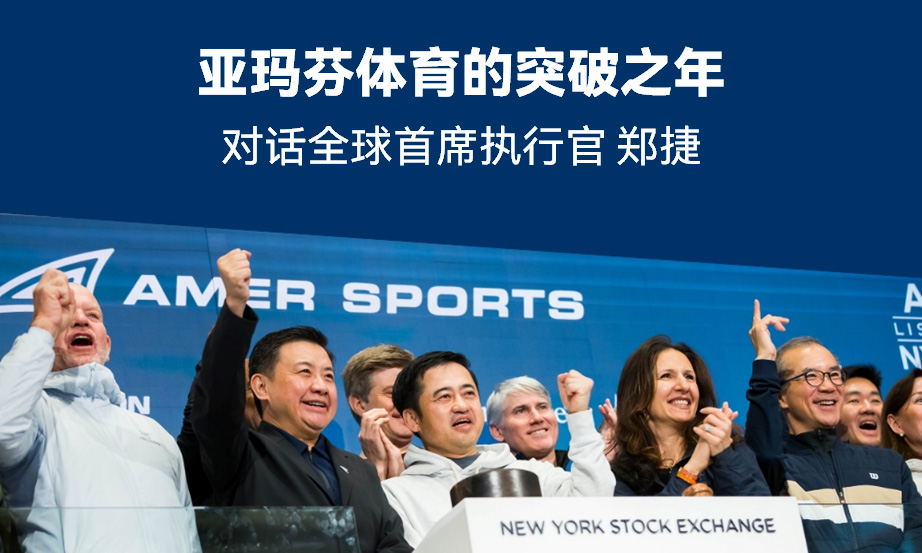
在这个日新月异且模棱两可的世界中,适应能力是关键。然而,一种普遍存在的思维模式阻碍了健康适应过程。这种思维模式带来的前景不仅会导致职业倦怠,还会阻碍我们质疑那些支撑我们在快速变化的环境中追求成功和高绩效的假设。牺牲型思维模式就是对这种思维模式的最好诠释。
虽然传统的思维模式通常围绕着行为和信仰,但最近的科学洞察表明,我们的思维模式通过情绪、思想和视角塑造了我们对世界的感知——我们如何感受、思考和观察之间的相互作用。通过加强这些维度,我们能够更有效地应对变化。
摆脱牺牲型思维方式的束缚
近年来,越来越多的人努力养成更健康的生活习惯,却发现自己被无休止的工作压力和高要求所困。职业倦怠呈上升趋势,影响着各行各业25%到80%的员工。这种常见的难题最终会导致疲惫和怨恨,侵蚀我们的动力和适应能力。
为取得成功而全力以赴的观念已经根深蒂固,超越了代际界限。牺牲型思维方式要求我们牺牲个人需求来换取经济利益、地位和权力。然而,这种牺牲往往会给家庭和福祉带来沉重的代价,并引发更广泛的社会挑战。
忽视情感需求会进一步加剧这一问题,让我们感到精疲力竭和疏离。随着瞬息万变的世界不断对我们提出更高的要求,这种思维方式的局限性变得越来越明显,使其在面对不确定性时收效甚微。
拥抱充足型思维方式
充足型思维方式围绕着承认和优先考虑我们的核心需求(身体、情感、精神、社交和目标驱动),以及我们的意志感(对这些事物的控制)。在牺牲型思维方式下,这些重要需求受到抑制,使我们无法发现自己真正的潜力。
通过将注意力从牺牲自己转向满足这些基本需求,我们就能脱颖而出。即使在混乱时期,通过培养身体健康、情感安全、社会联系和目标感,也能为复原力和控制力铺平道路。
从僵化的计划转向增强适应性,有助于做出更好的决策,同时要认识到情绪的触发因素并重新调整目标,从而掌握更大的控制权。
从牺牲型思维方式到充足型思维方式的转变,需要满足自己的核心需求,培养韧性,并为自己和他人赋能。随着世界飞速发展,采用这种新视角,我们就能掌握驾驭未知、拥抱变化并最终成功应对不确定性的方法。承认并优先考虑我们的内在需求,使得我们能够发掘自身潜力(取得成功),其中包括个人成就感、幸福感和有意义的人际关系。
从牺牲型思维方式转变为充足型思维方式,使我们能够以从容自信的姿态驾驭不确定性,也使我们能够基于同理心和公平性做出决定,树立全面的成功观,将我们的个人世界和职业世界融为一体。
通过实现身体、情感、社交和心理健康,我们可以为直面挑战做好准备。这种方法不仅能提高我们的适应能力,还能培养控制感和目标感,从而为行动提供指导。
随着世界不断发展,拥抱充足型思维模式已成为领导者和个人的有力工具。它使我们能够超越过去的局限,以符合我们独特价值观和愿望的方式重新构想成功。这样,我们就能为未来铺平道路,让未来充满韧性、成长和更深层次的成就感。充足型思维模式不仅仅是应对不确定性,更是在瞬息万变的世界中实现更高水平绩效的途径。(财富中文网)
让·戈麦斯(Jean Gomes)是Outside公司的首席执行官、顾问、研究员和《纽约时报》畅销书作者。他的研究著作《非线性世界中的领导力》(Leading in a Non-Linear World)探讨了最新的思维科学,以及如何构建和应用它来解决我们面临的最大挑战。
Fortune.com上发表的评论文章中表达的观点,仅代表作者本人的观点,不代表《财富》杂志的观点和立场。
译者:中慧言-王芳
在这个日新月异且模棱两可的世界中,适应能力是关键。然而,一种普遍存在的思维模式阻碍了健康适应过程。这种思维模式带来的前景不仅会导致职业倦怠,还会阻碍我们质疑那些支撑我们在快速变化的环境中追求成功和高绩效的假设。牺牲型思维模式就是对这种思维模式的最好诠释。
虽然传统的思维模式通常围绕着行为和信仰,但最近的科学洞察表明,我们的思维模式通过情绪、思想和视角塑造了我们对世界的感知——我们如何感受、思考和观察之间的相互作用。通过加强这些维度,我们能够更有效地应对变化。
摆脱牺牲型思维方式的束缚
近年来,越来越多的人努力养成更健康的生活习惯,却发现自己被无休止的工作压力和高要求所困。职业倦怠呈上升趋势,影响着各行各业25%到80%的员工。这种常见的难题最终会导致疲惫和怨恨,侵蚀我们的动力和适应能力。
为取得成功而全力以赴的观念已经根深蒂固,超越了代际界限。牺牲型思维方式要求我们牺牲个人需求来换取经济利益、地位和权力。然而,这种牺牲往往会给家庭和福祉带来沉重的代价,并引发更广泛的社会挑战。
忽视情感需求会进一步加剧这一问题,让我们感到精疲力竭和疏离。随着瞬息万变的世界不断对我们提出更高的要求,这种思维方式的局限性变得越来越明显,使其在面对不确定性时收效甚微。
拥抱充足型思维方式
充足型思维方式围绕着承认和优先考虑我们的核心需求(身体、情感、精神、社交和目标驱动),以及我们的意志感(对这些事物的控制)。在牺牲型思维方式下,这些重要需求受到抑制,使我们无法发现自己真正的潜力。
通过将注意力从牺牲自己转向满足这些基本需求,我们就能脱颖而出。即使在混乱时期,通过培养身体健康、情感安全、社会联系和目标感,也能为复原力和控制力铺平道路。
从僵化的计划转向增强适应性,有助于做出更好的决策,同时要认识到情绪的触发因素并重新调整目标,从而掌握更大的控制权。
从牺牲型思维方式到充足型思维方式的转变,需要满足自己的核心需求,培养韧性,并为自己和他人赋能。随着世界飞速发展,采用这种新视角,我们就能掌握驾驭未知、拥抱变化并最终成功应对不确定性的方法。承认并优先考虑我们的内在需求,使得我们能够发掘自身潜力(取得成功),其中包括个人成就感、幸福感和有意义的人际关系。
从牺牲型思维方式转变为充足型思维方式,使我们能够以从容自信的姿态驾驭不确定性,也使我们能够基于同理心和公平性做出决定,树立全面的成功观,将我们的个人世界和职业世界融为一体。
通过实现身体、情感、社交和心理健康,我们可以为直面挑战做好准备。这种方法不仅能提高我们的适应能力,还能培养控制感和目标感,从而为行动提供指导。
随着世界不断发展,拥抱充足型思维模式已成为领导者和个人的有力工具。它使我们能够超越过去的局限,以符合我们独特价值观和愿望的方式重新构想成功。这样,我们就能为未来铺平道路,让未来充满韧性、成长和更深层次的成就感。充足型思维模式不仅仅是应对不确定性,更是在瞬息万变的世界中实现更高水平绩效的途径。(财富中文网)
让·戈麦斯(Jean Gomes)是Outside公司的首席执行官、顾问、研究员和《纽约时报》畅销书作者。他的研究著作《非线性世界中的领导力》(Leading in a Non-Linear World)探讨了最新的思维科学,以及如何构建和应用它来解决我们面临的最大挑战。
Fortune.com上发表的评论文章中表达的观点,仅代表作者本人的观点,不代表《财富》杂志的观点和立场。
译者:中慧言-王芳
In a world marked by relentless change and ambiguity, adaptability is key. However, there is a prevailing mindset that acts as a barrier to healthy adaptation. The outlook driven by this mindset not only leads to burnout but also obstructs our ability to question the very assumptions that underpin our pursuit of success and high performance in a rapidly evolving landscape. It can be best described as the sacrifice mindset.
While traditional notions of mindset often revolve around behaviors and beliefs, recent scientific insights reveal that our mindset shapes our perception of the world through emotions, thoughts, and perspectives–the interplay of how we feel, think, and see. By strengthening these pillars, we equip ourselves to respond more effectively to change.
Unshackling yourself from the sacrifice mindset
Recent years have seen a surge in individuals striving to adopt healthier habits, only to find themselves trapped by the relentless pressures of work and high demand. Burnout is on the rise, impacting anywhere from 25 to 80% of employees across various sectors. This common conundrum is ultimately leading to exhaustion and resentment–eroding our motivation and capacity to adapt.
The notion of going all-in to achieve success has become deeply ingrained, transcending generational boundaries. The sacrifice mindset necessitates sacrificing personal needs for financial gain, status, and power. However, this sacrifice often takes a heavy toll on families and well-being and contributes to broader societal challenges.
Neglecting our emotional needs further exacerbates the issue, leaving us feeling depleted and disconnected. As our rapidly changing world continues to demand more from us, the limitations of this mindset become increasingly apparent, rendering it ineffective in the face of uncertainty.
Embracing the sufficiency mindset
The sufficiency mindset revolves around acknowledging and prioritizing our core needs (physical, emotional, mental, social, and purpose-driven), as well as our sense of volition (having control over these things). Suppressing these vital needs under the sacrifice mindset blinds us to our true potential.
By redirecting focus from sacrificing to fulfilling these fundamental needs, we tap into peak performance. Cultivating physical well-being, emotional security, social connections, and a sense of purpose paves the way for resilience and control, even in times of disruption.
Moving away from rigid plans toward greater adaptability facilitates better decision-making, whilst recognizing emotional triggers and recalibrating commitments enables a greater sense of control.
The transition from a sacrifice to a sufficiency mindset entails aligning with our core needs, fostering resilience, and empowering ourselves and others. As the world continues to evolve at a rapid pace, adopting this new perspective offers a way to navigate the unknown, embrace change, and ultimately thrive through uncertainty. Acknowledging and prioritizing our intrinsic needs gives us the ingredients to unlock the potential for true success–one that encompasses personal fulfillment, well-being, and meaningful relationships.
Shifting from a sacrificial approach to a sufficiency mindset equips us to navigate uncertainty with poise and confidence. It empowers us to make decisions rooted in empathy and fairness, fostering a holistic view of success that brings together both our personal and professional worlds.
By nurturing physical, emotional, social, and mental well-being, we can prepare ourselves to face challenges head-on. This approach not only enhances our capacity to adapt but also develops in us a sense of control and purpose that guides our actions.
As the world continues to evolve, embracing a sufficiency mindset becomes a powerful tool for leaders and individuals. It enables us to transcend the limitations of the past and reimagine success in a way that aligns with our unique values and aspirations. In doing so, we pave the way for a future marked by resilience, growth, and a deeper sense of fulfillment. The sufficiency mindset is not just a response to uncertainty–it’s a pathway to a higher level of performance in an ever-changing world.
Jean Gomes is the CEO of Outside, a consultant, researcher, and a New York Times Bestselling author. His research book, Leading in a Non-Linear World, explores the latest science of mindset and how to build and apply it to solving our greatest challenges.
The opinions expressed in Fortune.com commentary pieces are solely the views of their authors and do not necessarily reflect the opinions and beliefs of Fortune.





